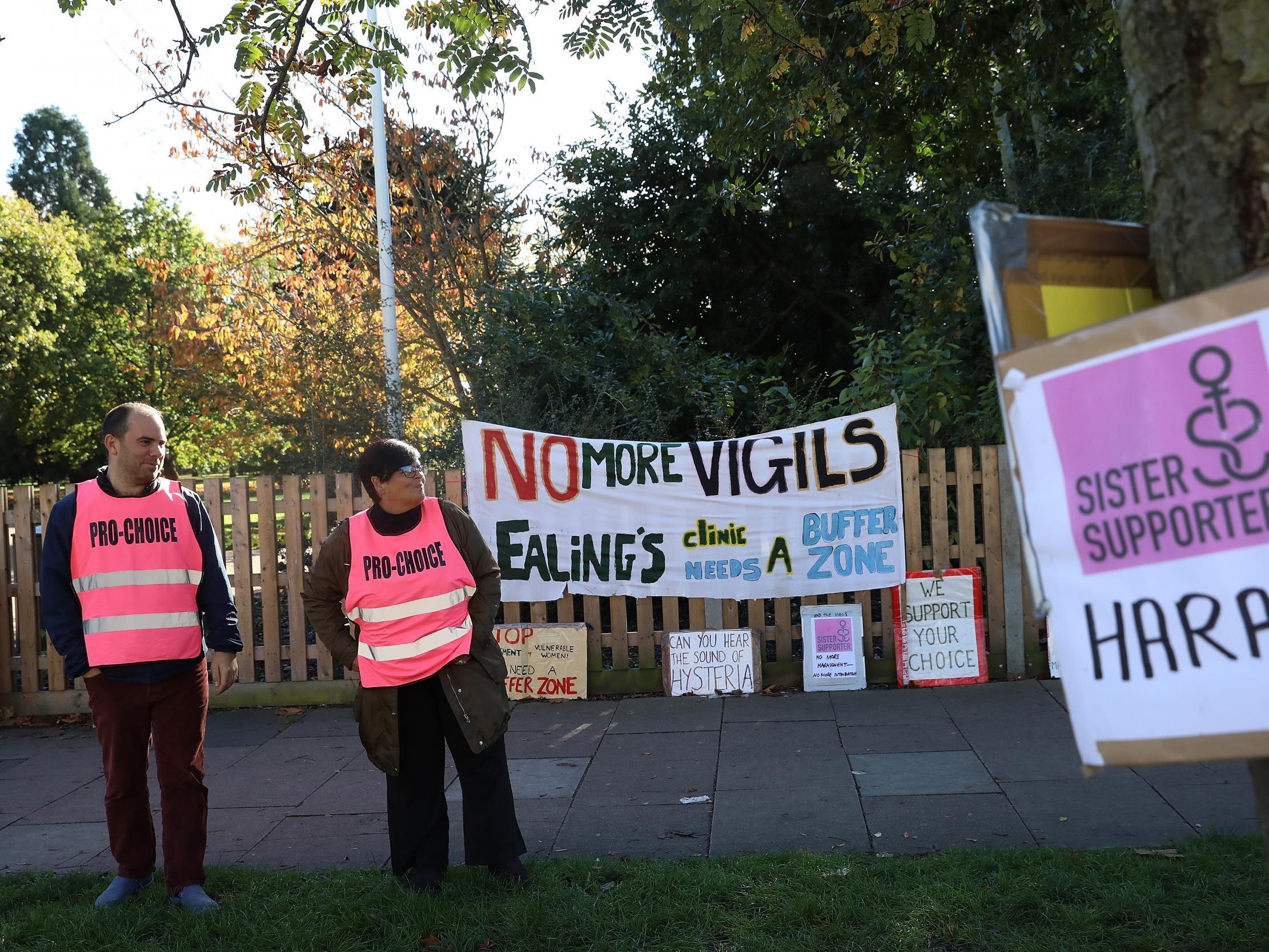As a doctor who provides abortions in the UK, I know we don’t have it much better here than in the US
Organisations that provide an anti-harassment presence outside abortion clinics are even more vital now than ever before


Your support helps us to tell the story
From reproductive rights to climate change to Big Tech, The Independent is on the ground when the story is developing. Whether it's investigating the financials of Elon Musk's pro-Trump PAC or producing our latest documentary, 'The A Word', which shines a light on the American women fighting for reproductive rights, we know how important it is to parse out the facts from the messaging.
At such a critical moment in US history, we need reporters on the ground. Your donation allows us to keep sending journalists to speak to both sides of the story.
The Independent is trusted by Americans across the entire political spectrum. And unlike many other quality news outlets, we choose not to lock Americans out of our reporting and analysis with paywalls. We believe quality journalism should be available to everyone, paid for by those who can afford it.
Your support makes all the difference.Following the introduction of a total abortion ban in Alabama (with up to 99 years in jail for any doctor that performs the procedure), I and others working in abortion services watched our social media newsfeed erupt into debates surrounding abortion legislation and access.
While it has been exciting to see these much-needed conversations revived in the mainstream, it was surprising to see the lack of understanding surrounding abortion access in UK.
Those that require an abortion (that means trans men and non-binary people too) can still struggle to access abortions, particularly those at later gestations.
So, are we really doing that much better than the US? With abortion legislation in Northern Ireland being stricter than that in Alabama and some of those accessing services experiencing harassment – it is time for us to face up to barriers to UK abortion provision.
The placards read “Pray to End Abortion”, “Abortion is Murder” and then there are the giant photos of embryos which line the street.
A “protestor” wears a body camera capturing the identities of those entering and leaving the clinic; they’ll say it’s for their protection.
Another “protester” may hand out a flyer telling you about your day of reckoning perhaps, hand you a small plastic embryo or call you a murderer.
These are the scenes outside some UK-based abortion services. For those accessing those services, particularly those in independent NHS-funded clinics (through which 70 per cent of abortions are provided) through organisations like the British Pregnancy Advisory Service (BPAS) or Marie Stopes, “protests” or “vigils” outside clinics are a more common occurrence these days.
Both providers and those accessing care have stated that these protests make them feel unsafe. Yet a call for better protection of abortion services last year was rejected. The home secretary, Sajid Javid, refused to introduce “buffer zones” for abortion clinics as he stated that the protests were “passive in nature” and chose to instead to “extend his sympathies to those going through this extremely difficult and personal process”.
This means that organisations such as Sister Supporter (modelled on similar US organisations), who provide an anti-harassment presence outside abortion clinics, are even more vital.
For those with additional medical conditions such as epilepsy or heart conditions, seeking abortion can mean further delays as they must be managed in an NHS facility rather than the independent sector. A local provider may struggle to find a centre that can accommodate those with complex medical conditions as well as those presenting in the second trimester.
Those seeking abortion in the second trimester may have to travel hundreds of miles to access abortion services; this is of significant concern for those who are younger, from deprived backgrounds or living rurally.
The current system of abortion provision continues to penalise the most vulnerable and fails to acknowledge that for some the decision is a socioeconomic necessity.
There continues to be a problem with the number of abortion providers in the UK with those working in abortion experiencing stigma from other health care colleagues; from overhearing unpleasant comments, to more overt obstructive behaviour (even after it is reported).
Despite the work of spearheading organisations such as Doctors for Choice UK, there remains a need to challenge perceptions regarding abortion among medical professionals and allied health staff.
One method would be to improve teaching at medical schools. Currently, teaching is inconsistent with many medical students receiving little or no formal training. The continued silence surrounding abortion within the medical curriculum is likely contributing to the lack of abortion providers and the stigma experienced by staff.
Those accessing abortion are often shocked to find out that the procedure is still criminalised and that providers must ensure that two doctors agree that an abortion is necessary by signing a form; failure to do so can result in the imprisonment of the provider.
Several organisations, including the Royal College of Obstetricians & Gynaecologists (RCOG), British Medical Association (BMA) and the Royal College of General Practitioners (RCGP) have emphasised that decriminalisation is an important tool for reducing abortion-related stigma while still allowing for regulated services.
It is significant that in a country where abortion is accessible, some still prefer to illegally access abortion pills online without a consultation from a doctor and risk being sentenced to life imprisonment.
The website Women on Web is contacted by women who consider abortion services inaccessible, stating difficulties with travel and expenses, finding child care, unachievable clinic appointments and concerns about stigma from family or friends as reasons for trying to buy pills on line despite being illegal.
With RCOG issuing guidance on the home use of abortion medication for early pregnancy (65 per cent of all abortions), it is time that we rethink our approach and provide greater autonomy.
We should all feel outraged regarding the attack on reproductive autonomy signalled by the mounting challenges to Roe v Wade in the US. But we mustn’t be hypocritical. With those in Northern Ireland still without abortion access, it’s important to remember that the harassment of abortion providers at home continues.
Join our commenting forum
Join thought-provoking conversations, follow other Independent readers and see their replies
Comments